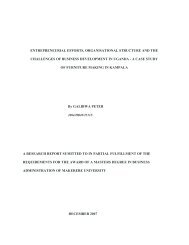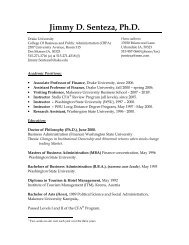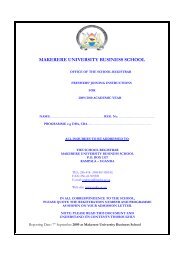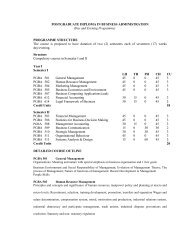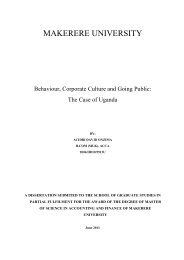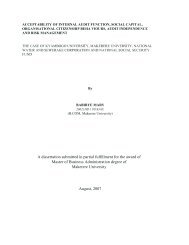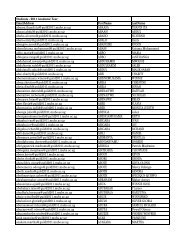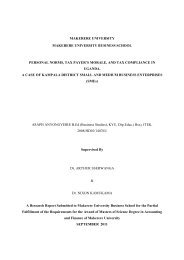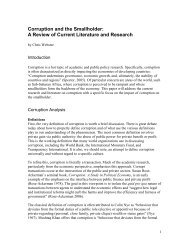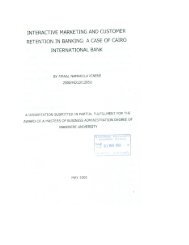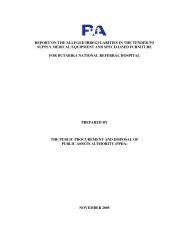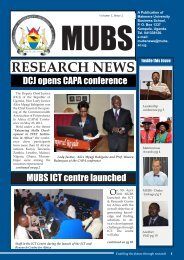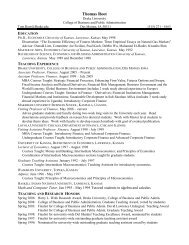13th Annual International Management Conference Proceeding
13th Annual International Management Conference Proceeding
13th Annual International Management Conference Proceeding
Create successful ePaper yourself
Turn your PDF publications into a flip-book with our unique Google optimized e-Paper software.
accountability. They assess their progress in terms of social, financial, and managerial outcomes, not simply<br />
in terms of their size, outputs, or processes. They use this information to make course corrections as needed.<br />
5.0 Conclusion<br />
The ideas of Say, Schumpeter, Drucker, and Stevenson are attractive because they can be as easily applied in<br />
the social sector as the business sector. They describe a mind-set and a kind of behavior that can be manifest<br />
anywhere. In a world in which sector boundaries are lurring, this is an advantage. We should build our<br />
understanding of social entrepreneurship on this strong tradition of entrepreneurship theory and research.<br />
Social entrepreneurs are one species in the genus entrepreneur. They are entrepreneurs with a social mission.<br />
However, because of this mission, they face some distinctive challenges and any definition ought to reflect<br />
this.<br />
6.0 Recommendations<br />
1. In order to foster Social entrepreneurship in Uganda, there is need to create organizations based on<br />
natural bonds built on trust, networks that are building blocks of social capital. Artificial bonds formed<br />
in most social enterprises in Uganda explained by theory of planned behaviour continue to hamper<br />
meaningful development of social enterprises which are the product of social entrepreneurship.<br />
2. Government bodies responsible for regulating formation of business in Uganda should exhibit a<br />
heightened sense of accountability to the constituencies served and for the outcomes created. This will<br />
create a sense of ownership in the organizations formed with the aim of improving the social status of<br />
poor members in the community.<br />
3. In the implementation of prosperity for all (Bonnabagaggawale) scheme, government should start with<br />
giving incentives that will arouse social entrepreneurial abilities. What people lack is not money, but<br />
most Ugandans cannot translate their skills into productive ventures because there are no incentives like<br />
good roads, ready markets and proper leadership to exploit naturally occurring abilities that matter most<br />
in social entrepreneurial ventures.<br />
4. There is need to increase out-reach of social services to the chronically poor and marginalized as well as<br />
the remote rural and geographically disadvantaged areas while emphasizing the benefits of social capital<br />
ie networking, trust, reciprocity, norms and beliefs that promote change of behaviour aimed at<br />
alleviating poverty levels one of the aims of PEAP.<br />
5. Government should adopt the system of micro credit to help to pull the poorest out of destitution<br />
following the Grameen model. This is based on the assertion that the poor do not create poverty, it is<br />
the institutions and policies that surround them that create it.<br />
68



